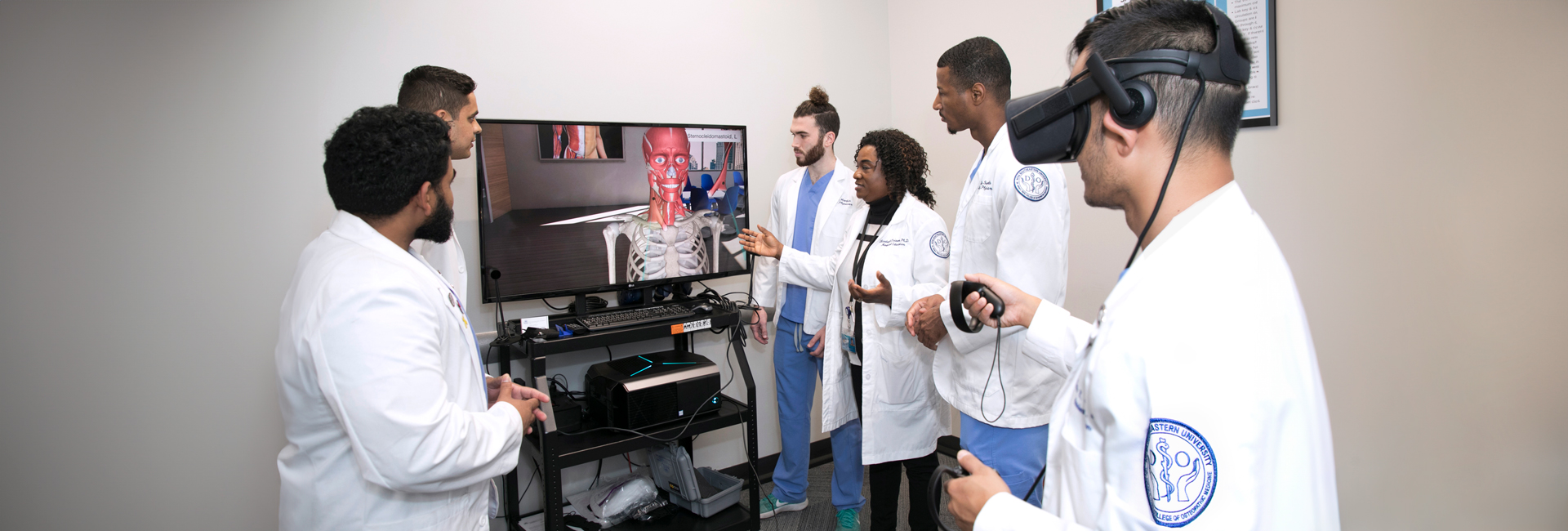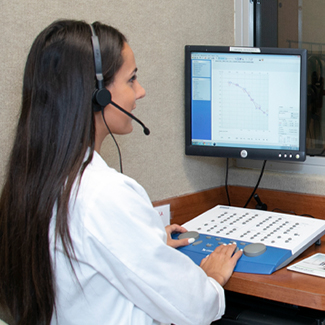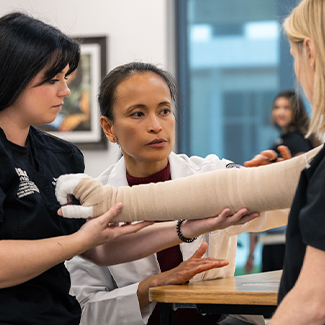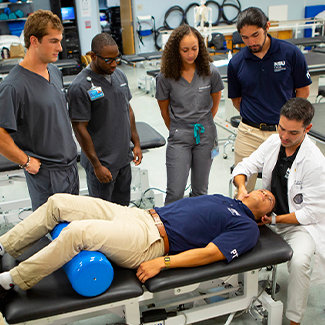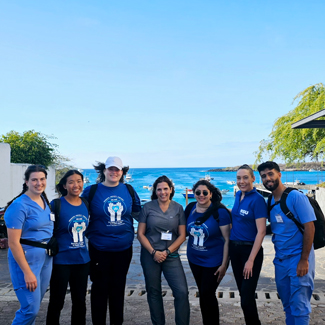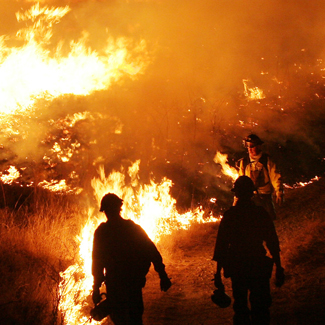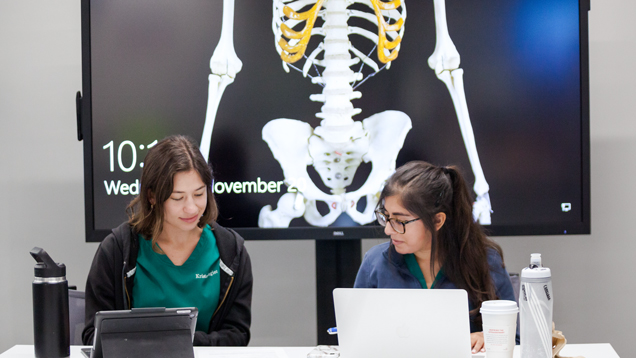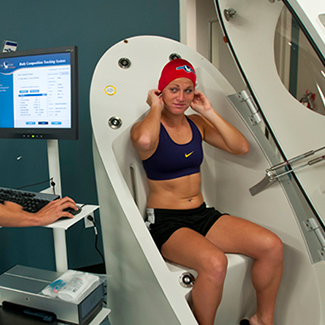Dedicated to Serving the Medically Underserved
The Dr. Kiran C. Patel College of Osteopathic Medicine at Nova Southeastern University provides learner-centered education, both nationally and internationally, for osteopathic medical students, postgraduate trainees, physicians and other professionals.
Honoring our benefactors' commitment to strengthen our medical and health sciences educational opportunities, we have created the Dr. Pallavi Patel School of Rehabilitative Sciences as part of the College of Osteopathic Medicine.
Through its interprofessional programs in a diverse and inclusive environment, the
College of Osteopathic Medicine's best-of-class doctoral, master's, and bachelor's
degree programs prepare compassionate, respected leaders in healthcare and create
competent lifelong learners.
The college advocates for the equitable health and welfare of diverse populations,
including the medically underserved, while enabling its students to gain the skills
to solve today's and tomorrow's complex health problems.
Apply Now
Doctoral Programs
Doctor of Osteopathic Medicine
D.O. ProgramDoctor of Audiology (Au.D.)
Our Difference is ClearPh.D. in Couple and Family Therapy
Couple and Family Therapy DegreeDoctor of Marriage and Family Therapy
D.M.F.T. DegreeDoctor of Occupational Therapy (O.T.D.)
Be at Standout O.T. PractitionerDoctor of Occupational Therapy (O.T.D.) - Hybrid
Graduate in Three Years With NSU's Fast TrackDoctor of Occupational Therapy (Dr.OT), Post-Professional
Become an Effective AdvocatePh.D. in Occupational Therapy
Advance Your Career as a Leader, Researcher, or AcademicianDoctor of Physical Therapy (D.P.T.)
Propelling You to the Front of the ClassDoctor of Physical Therapy (D.P.T.) - Hybrid
Blended Learning Creates a Distinct Learning ExperiencePh.D. in Physical Therapy
Be a Change Agent in Your ProfessionDoctor of Speech-Language Pathology (S.L.P.D.)
Make a Bigger ImpactMaster's Degrees
Public Health
Masters of Public Health (M.P.H.)Health Informatics
Masters in Health InformaticsDisaster and Emergency Management
Masters in Disaster and Emergency ManagementCouple and Family Therapy
M.S. in Couple and Family TherapyMedical Education
M.S. in Medical EducationNutrition
M.S. in NutritionM.S. in Foundational and Integrated Medical Sciences
Reserve a Seat in our D.O. ProgramM.S. in Speech-Language Pathology
Direct. Empower. Advocate.M.S. in Sports Science
Explore OptionsBachelor's Degrees
Exercise and Sport Science
B.S. in Exercise and Sport SciencePublic Health
B.S. in Public HealthHuman Nutrition
B.S. in Human NutritionHealth Informatics
B.S.in Health InformaticsSpeech-Language and Communication Disorders
B.S. in Speech-Language and Communication DisordersDual Admission
Browse Programs
NSU Students Are Global Healthcare Leaders
NSU's Dr. Kiran C. Patel College of Osteopathic Medicine consistently evaluates and revises its curriculum and technology to ensure that its students receive a multifaceted education that will allow them to maximize their potential and provide them with the tools to become first-rate physicians.
Elaine M. Wallace | Dean, Dr. Kiran C. Patel College of Osteopathic Medicine
Faculty Excellence
Faculty Members Lead With Their Passion for Transforming Lives
Our dynamic faculty of nearly 150 full time and 1,200 adjunct professors deliver pace-setting curriculum to train students to become leaders in the healthcare field. They are committed to a collaborative learning environment where diverse ideas and cultures are embraced.
Faculty members at the College of Osteopathic Medicine explore every aspect of health and disease, including health disparities and behavioral health population studies of disease prevention and management.
Meet Our Faculty
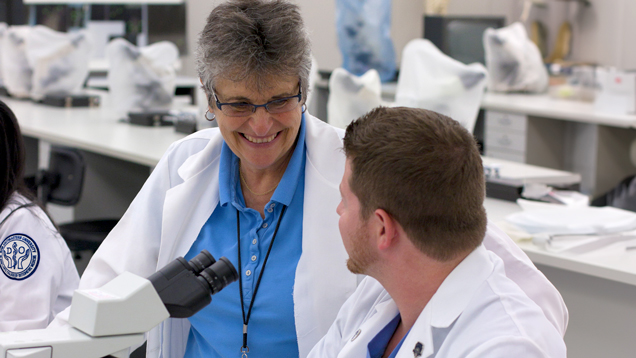
Institute for Neuro-Immune Medicine
Innovative Research
NSU's Institute for Neuro-Immune Medicine (INIM) strives to advance knowledge and care for people with complex neuro-inflammatory illnesses through the integration of research, clinical care and education.
Current research focus at the INIM includes myalgic encephalomyelitis/chronic fatigue syndrome (ME/CFS), Gulf War illness (GWI), fibromyalgia, autism, Lyme disease, HIV/AIDS and other chronic complex medical illnesses.
About the Institute

Alumni
College of Osteopathic Medicine News






